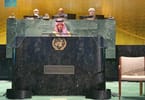Further strengthening in Brazil’s real, which has rallied a world-beating 31 percent this year, may drive away foreign visitors before Rio de Janeiro hosts the 2016 Olympics, Tourism Minister Luiz Barretto said.
Barretto, speaking in a Bloomberg Television interview in Brasilia, said spending by foreign visitors to Brazil has dropped 9 percent during the global financial crisis. It could fall further if the real strengthens much beyond 1.80 per dollar, he said.
“Certainly spending by foreigners will fall if the dollar stays at a very low level,” said Barreto, 46, adding that Brazil’s domestic tourism market in a country of 192 million people might also begin to suffer. “It could also create another problem for me: too much of a stimulus for Brazilians to go abroad.”
Brazil’s real is the best-performer of the world’s 16 most- traded currencies in 2009, having soared as investors buy stocks and bonds in expectation that Latin America’s largest economy is among the countries emerging the strongest from the global financial crisis. The real today fell 2 percent to 1.7680 per dollar at 3:05 p.m. New York time from 1.7328 yesterday.
Jason Vieira, trader at international desk of Cruzeiro do Sul Corretora in Sao Paulo, said today that further appreciation of the real to as much as 1.65 per dollar is “inevitable” until the U.S. economic recovery is entrenched. The real is forecast to end the year at 1.7 per dollar, according to an Oct. 23 central bank survey of about 100 economists.
Rio was selected this month to host the 2016 Olympics over finalists Chicago, Tokyo and Madrid even as some observers expressed concern about high levels of violence. Last year, 4,453 people were killed in the Rio metropolitan area, according to government statistics.
Rio Violence
“Violence is a real problem,” said Barretto, who is a sociologist by training. “We’re not going to cover it up. We’re going to have to take a series of actions to confront it.”
To improve the country’s image ahead of the Games and the hosting of the 2014 World Cup, Barretto said he intends to double to 120 million reais ($68 million) the amount of money Brazil spends annually abroad to promote tourism.
Barretto said that the stronger currency, while favoring cheaper and better-known destinations like the Caribbean and Mexico, would not turn away the between 500,000 and 600,000 foreign visitors expected to attend the 2014 World Cup here.
“The world will sort itself out by then,” he said.
Barretto said state-development bank BNDES hoped to have ready by November a 1 billion-real credit line to finance the construction of hotels for the two major sporting events. Rio, as part of its winning bid, promised to double current hotel space to 50,000 rooms.
WHAT TO TAKE AWAY FROM THIS ARTICLE:
- To improve the country's image ahead of the Games and the hosting of the 2014 World Cup, Barretto said he intends to double to 120 million reais ($68 million) the amount of money Brazil spends annually abroad to promote tourism.
- Brazil's real is the best-performer of the world's 16 most- traded currencies in 2009, having soared as investors buy stocks and bonds in expectation that Latin America's largest economy is among the countries emerging the strongest from the global financial crisis.
- “Certainly spending by foreigners will fall if the dollar stays at a very low level,” said Barreto, 46, adding that Brazil's domestic tourism market in a country of 192 million people might also begin to suffer.






















